Twain’s End
categories: Cocktail Hour
Comments Off on Twain’s End
 When I was at the Tucson Book Festival I was lucky to meet a great writer and generous soul named Lynn Cullen. Now her book about the relationship between Mark Twain and his secretary, Twain’s End, is out in paperback.
When I was at the Tucson Book Festival I was lucky to meet a great writer and generous soul named Lynn Cullen. Now her book about the relationship between Mark Twain and his secretary, Twain’s End, is out in paperback.
The Huffington Post wrote: “Lynn Cullen is the Bronte of our day.”
In the book Lynn re-imagines the tangled relationships between Twain, Isabel Lyon, and Ashcroft, as well as the little-known love triangle between Helen Keller, her teacher Anne Sullivan Macy, and Anne’s husband, John Macy, which comes to light during their visit to Twain’s Connecticut home in 1909. Add to the party a furious Clara Clemens, smarting from her own failed love affair, and carefully kept veneers shatter.
“Reputation-squaring novel. Cullen splashes a surplus of fuel onto her incendiary raw material.” – New York Times Book Review
“[A] fascinating interpretation of this early 20th century literary immortal, distinguished by incisive character portrayals and no-holds-barred scrutiny.” – Publishers Weekly, starred review
Read more at:http://lynncullen.com/
The Taming of the Wild
categories: Cocktail Hour
Comments Off on The Taming of the Wild
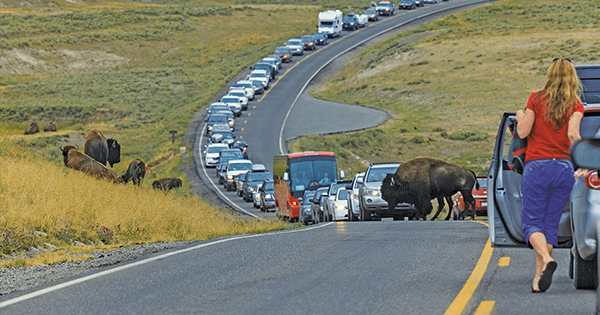 I have an essay in the new issue of The American Scholar. Here’s how it starts:
I have an essay in the new issue of The American Scholar. Here’s how it starts:
I am standing on top of Bald Mountain in Sonoma Valley, staring profoundly off toward the far Pacific and the dying sun. I scrunch my eyebrows and squint a little, thinking this will add to my overall air of deep thoughtfulness. My facial muscles are responding not to the transporting magic of nature, however, but to another imperative: I need to look good for the camera. Cameras, actually. Off to my side, a young man named Jimmy, whose easygoing professionalism I’ve come to respect over the past 10 days of shooting, points a surprisingly heavy (I have tried to lift it) camera at my head to film me in profile. Up above, a drone swoops over to capture the full grandeur of the moment. Following instructions, I move closer to the edge of the mountain, striking a pose that is meant to say part world conqueror, part shaman. I am a New Age Cortés.
Later, in search of the perfect shot, the drone will crash into a tree and be rendered inoperable. Later still, when I see the drone footage on TV, I will realize for the first time that I have a significant bald spot.
The idea of the show, put oversimply, is that nature is good and that screens—whether those of computer, camera, TV, or phone—are bad. But of course it takes a lot of screens to get this point across. The irony of this is the sort that is easy for a sixth-grader to comprehend. I know this for a fact, because when I use the TV show as a teaching moment with my 12-year-old daughter, railing against all her texting and phoning and computing, and telling her she should get out in nature more, she rightly points out that the whole time I was out in nature, I was being filmed.
Read the rest HERE
Braving It
categories: Cocktail Hour
1 comment
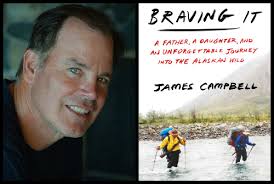 James Campbell’s Braving It came out last week. It’s a great book, beautiful and original, the story of a father and a daughter and their adventures in Alaska. It’s about wildness and beauty but also about family and the encroaching fear of aging, of a father coming into a strange new time in his life just as his daughter is coming into a strange new time in hers. There has been nothing like it as far as the nature/father/daughter combination, and it is much more interesting to me than the theory/Last Child in the Woods-type stuff. Nothing feels forced and the relationship comes across as very real and moving. Meanwhile the writing about the natural world and the descriptions in general are great. Creosote in the stove is like scurrying mice and spruce trees are “weary white-robed pilgrims worshiping December’s new moon.” It’s both taut and lush, a tough combo to beat.
James Campbell’s Braving It came out last week. It’s a great book, beautiful and original, the story of a father and a daughter and their adventures in Alaska. It’s about wildness and beauty but also about family and the encroaching fear of aging, of a father coming into a strange new time in his life just as his daughter is coming into a strange new time in hers. There has been nothing like it as far as the nature/father/daughter combination, and it is much more interesting to me than the theory/Last Child in the Woods-type stuff. Nothing feels forced and the relationship comes across as very real and moving. Meanwhile the writing about the natural world and the descriptions in general are great. Creosote in the stove is like scurrying mice and spruce trees are “weary white-robed pilgrims worshiping December’s new moon.” It’s both taut and lush, a tough combo to beat.
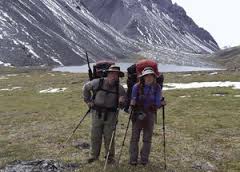
I was honored that Jim asked me for a blurb. Here is what I came up with:
“Braving It is a beautiful and original book, an antidote to the screen-ification of modern life, and if there is any justice in the world it will be a huge hit. Wilder than Wild, it is also the most honest, moving and true story of a relationship between a father and a daughter that I have ever read. As the father enters the country of middle-age, and the daughter edges toward adulthood, they share an epic Alaskan 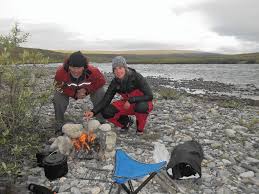 adventure that includes running rivers, polar and grizzly bears, and bitter cold. They also encounter something even more dangerous: fleeting time. They both seem to realize that they will never again have this moment, which,for all the book’s beauty, gives it an edge of sadness. Countering this sadness, is the gift that father gives daughter and that the writer gives the reader: the gift of the elemental now, of moments of wind, fire,water, snow, cold, beauty. And of equally primal moments of human love and connection.”
adventure that includes running rivers, polar and grizzly bears, and bitter cold. They also encounter something even more dangerous: fleeting time. They both seem to realize that they will never again have this moment, which,for all the book’s beauty, gives it an edge of sadness. Countering this sadness, is the gift that father gives daughter and that the writer gives the reader: the gift of the elemental now, of moments of wind, fire,water, snow, cold, beauty. And of equally primal moments of human love and connection.”
Lewis Robinson’s “Talk Shop” Podcast, with Yours Truly, Bill Roorbach
categories: Cocktail Hour / Podcasts / Table For Two: Interviews
Comments Off on Lewis Robinson’s “Talk Shop” Podcast, with Yours Truly, Bill Roorbach
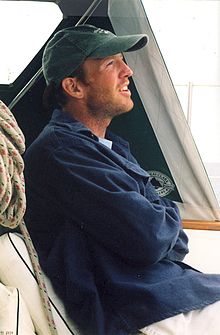 I enjoyed this talk with Lewis Robinson, which took place in his man cave with microphones, with an actual train going by. I sound like I’m almost asleep–and it’s true, I was very tired. But Lewis drew me out, and as David Olson said on Facebook: “This view into the writer’s mind is both fascinating and scary. In three words, I loved it!” I loved it, too, as Lewis is a new old friend, and an awfully smart, sweet guy, also a novelist.
I enjoyed this talk with Lewis Robinson, which took place in his man cave with microphones, with an actual train going by. I sound like I’m almost asleep–and it’s true, I was very tired. But Lewis drew me out, and as David Olson said on Facebook: “This view into the writer’s mind is both fascinating and scary. In three words, I loved it!” I loved it, too, as Lewis is a new old friend, and an awfully smart, sweet guy, also a novelist.
All episodes of Talk Shop are free: check out past interviews with Justin Tussing, Richard Russo, Susan Conley, Ron Currie Jr., Jen Blood, Monica Wood, Callie Kimball, Brock Clarke, Megan Grumbling, Gibson Fay-Leblanc, Kate Christensen, Phuc Tran, and Keith Lee Morris.

Guest contributor: Debora Black
Table for Two: An Interview with Mira Ptacin
categories: Cocktail Hour / Guest Columns / Table For Two: Interviews
5 comments
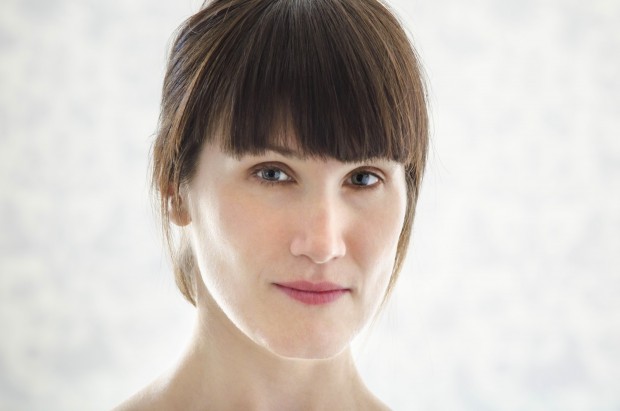
Debora: Poor Your Soul is such a lonely title. Very sad. Tell us about what’s inside your pages.
MIRA: Here’s the story: in 2008, at age twenty-eight, I accidentally got pregnant, despite taking birth control pills and never missing a dose. (I’m that 1 percent.) It wasn’t easy, I wasn’t happy about it, but I embraced it. And even though we’d only known each other for just three months, my boyfriend Andrew and I got engaged. Five months later, during the ultrasound that was to predict the sex of our baby, doctors found instead that our child had a constellation of birth defects and no chance of survival outside my womb. I was given three choices: terminate the pregnancy, induce delivery, or do nothing and inevitably miscarry. Poor Your Soul simultaneously traces my mother’s immigration from Poland at the age of twenty-eight, the adoption of her son Julian, his tragic death, and her reaction to the grief that followed. Both our stories examine how woman copes with the inevitable but unexpected losses a woman faces in the search for her identity. But overall, this isn’t a sad story. It’s a love story, about how I found love in my marriage, in my family, and for myself when everything around us was in chaos. It’s about perseverance and will. Continue reading →
Ocracoke
categories: Cocktail Hour
Comments Off on Ocracoke
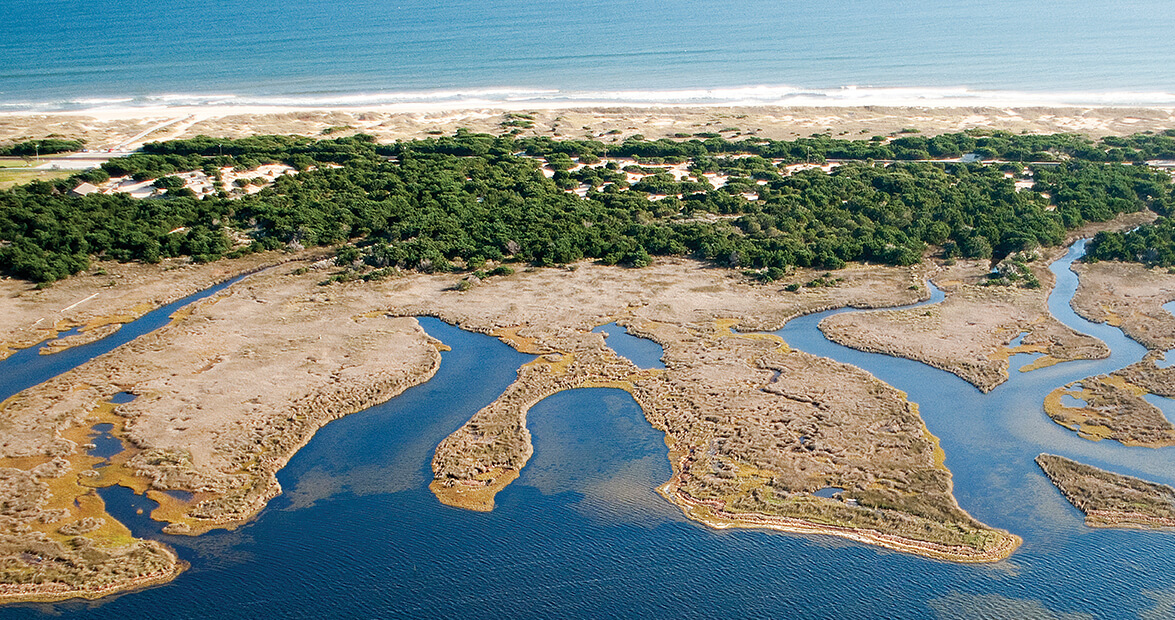 What does it mean to love a vulnerable thing? A thing that won’t keep still or remain the same?
What does it mean to love a vulnerable thing? A thing that won’t keep still or remain the same?
I took the Cedar Island ferry to Ocracoke Island for the first time almost 10 years ago. On the boat, I became engaged in an animated conversation about birds with one of the deckhands. I pointed out a Northern gannet off the bow, a diving bird that migrates to Southern waters only in the winter.
“They come in with the cold,” he said. “We had a crowd of ducks — pintails — yesterday, too.”
From his emphasis on ducks, I assumed he was a hunter. Hunters are the only other group that knows birds as well as bird-watchers. We talked some more about what had been migrating through, and then he pointed ahead, to where 20 or so dolphins were swimming. Three veered off and headed straight for us, silver shining off their backs, and soon they were surf-riding in the bow right in front of the ferry. They were obviously doing it just for the fun of it, since they had originally been traveling in the opposite direction. Soon, other people got out of their cars and started snapping photos.
It was a delightful escort into the southern end of Ocracoke, and the delights continued ashore. I drove about halfway up the island before I pulled over at a beach access. The entrance was directly across from the pens that held the island’s famous Banker ponies, a species of small horse unique to Ocracoke that roamed wild on the marshes and beaches for centuries after they were left here by Spanish explorers. Continue reading →
Wild Ways
categories: Cocktail Hour
Comments Off on Wild Ways
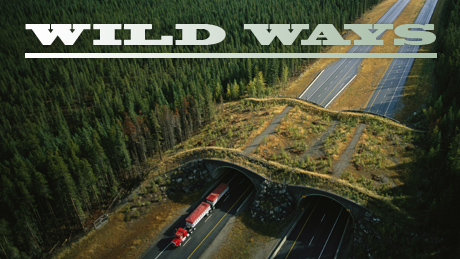 I have mocked the editor-encouraged tendency of all nature essays and articles to “end hopefully,” no matter how dire the subject. But on this Earth Day I’ll throw a little hope into the mix. Last Wednesday Nova aired a show called Wild Ways, featuring the idea of connecting large patches of the wild with wilderness corridors. Thanks to people like Banff’s Harvey Locke, who is featured in the show, this is no longer as far-fetched an idea as it once was.
I have mocked the editor-encouraged tendency of all nature essays and articles to “end hopefully,” no matter how dire the subject. But on this Earth Day I’ll throw a little hope into the mix. Last Wednesday Nova aired a show called Wild Ways, featuring the idea of connecting large patches of the wild with wilderness corridors. Thanks to people like Banff’s Harvey Locke, who is featured in the show, this is no longer as far-fetched an idea as it once was.
As I wrote in All the Wild that Remains: “Rewilding is a radical idea, but so was saving parkland when it was first proposed. With the creation of the parks we did something that no one expected, something no one had ever done. Now imagine if parks became not just museums of remnant ecosystems but beads on a much larger rosary, stopover points in a migratory corridor that runs up and down the continent’s spine. Anyone who looks too long at the environmental problems facing us can become overwhelmed and dispirited. But the thought of rewilding gives me hope. It is big. It is bold. It excites imaginations. And, as ideas go, it is wild.”
Here is the link to info about the show.
Big Sur!
categories: Cocktail Hour
3 comments
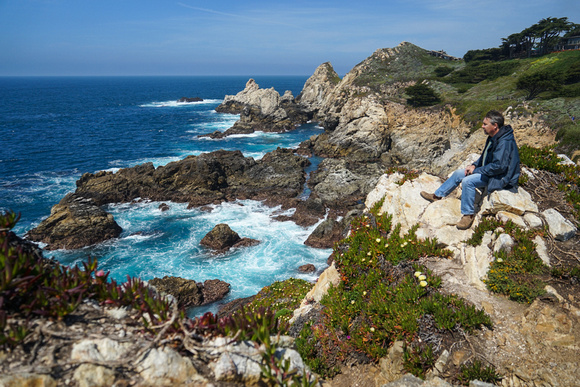 When Wendell Berry returned to Kentucky as a young writer he said that one of the challenges was that it was unwritten ground. I always thought Cape Cod was the opposite, over-written ground, where every rock and tree already had a poem or essay written about it. Well, Big Sur, where I spent a couple days last week, gives Cape Cod a run for its money. As beautiful and wild as the place was, almost everything I saw triggered a literary association, starting with the great sea cliffs I knew until then only through the poetry of Robinson Jeffers….”We must uncenter our minds from ourselves/We must unhumanize our views a little/and become confident/As the rock and ocean we were made from.”
When Wendell Berry returned to Kentucky as a young writer he said that one of the challenges was that it was unwritten ground. I always thought Cape Cod was the opposite, over-written ground, where every rock and tree already had a poem or essay written about it. Well, Big Sur, where I spent a couple days last week, gives Cape Cod a run for its money. As beautiful and wild as the place was, almost everything I saw triggered a literary association, starting with the great sea cliffs I knew until then only through the poetry of Robinson Jeffers….”We must uncenter our minds from ourselves/We must unhumanize our views a little/and become confident/As the rock and ocean we were made from.”
All photos by Deborah Lorenc

Guest contributor: Bill Lundgren
Lundgren’s Lounge: “Stop Here, This is the Place,” by Susan Conley and Winky Lewis
categories: Cocktail Hour / Reading Under the Influence
Comments Off on Lundgren’s Lounge: “Stop Here, This is the Place,” by Susan Conley and Winky Lewis
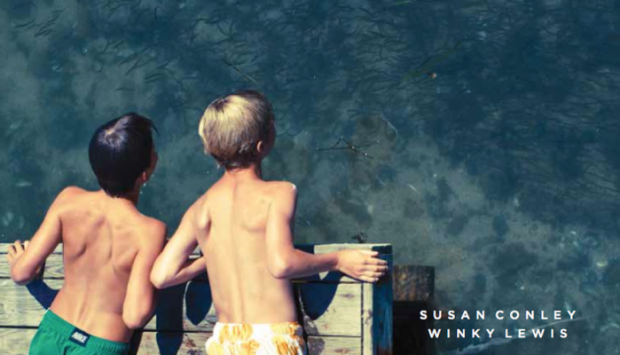
Words and images on the page have a variety of purposes: to instruct, to persuade, to ediify, to entertain, to evoke… and it is this last that comes to mind while reading and looking at Stop Here: This is the Place, A Year in Motherhood, a unique collaboration between photographer Winky Lewis and writer Susan Conley. Continue reading →
Immortal Freemasonry Explained
categories: Cocktail Hour
3 comments
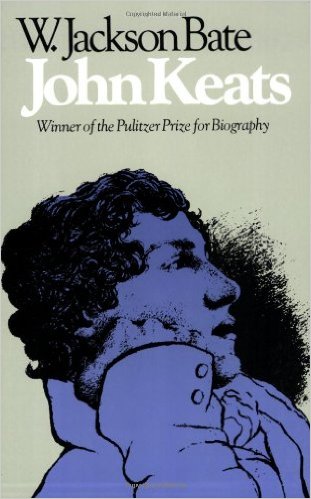 It was Keats who coined the highfalutin phrase “immortal freemasonry.” What it means in simple English is this: dead writers are alive to us.
It was Keats who coined the highfalutin phrase “immortal freemasonry.” What it means in simple English is this: dead writers are alive to us.
I have no idea why this idea, of connections and literary lineage, kept weaving through my dreams last night. I am in LA at the Associated Writers and Writing Programs conference, an event where my brain is usually at its soggiest, and my dream life is rarely so highbrow. But last night I couldn’t stop thinking, or sleep-thinking, about teachers and students and the way we pass things down over the generations.
Maybe this had to do with reading about my former student Carson Vaughan’s encounter with Jim Harrison before he died. (Nina and I were lucky enough to have a similar encounter with John Updike not long before he died.) Or maybe it has to do with the fact that later today at a ceremony at our school a friend is going to quote from a T.S.Eliot poem I suggested about the way the past is present.
But back to the definition. The idea is that writers are “freemasons,” part of a secret society, and that membership in that society doesn’t end just because you are dead. This can be as simple as picking up a dead writer’s book. Inert print becomes something else when another mind revives it. For me a perfect example is the liveliness of Montaigne, despite being 500 years dead, and I have recently been fond of quoting Emerson’s line about him: “Cut his sentences and they bleed.” Continue reading →


